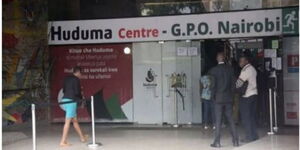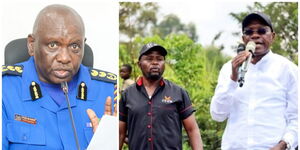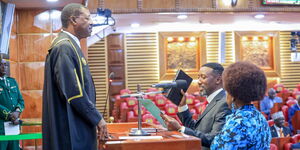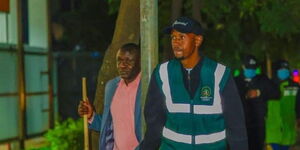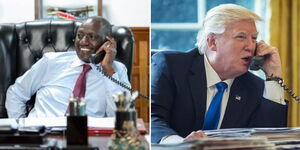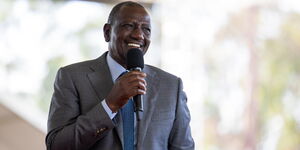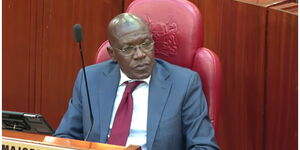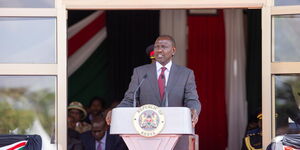ODM leader Raila Odinga was once at loggerheads with President Mwai Kibaki after the controversial 2007 General Election.
In Raila's book, The Flame of Freedom, he narrated how the two leaders quarrelled and confronted each other a number of times because they could not settle on Cabinet positions in the Grand Coalition Government, despite the late United Nation's Secretary General Kofi Annan's intervention.
The stalemate led to Kibaki begging Raila in a manner that forced Raila to bow in and accept Kibaki's plea.
"In fact, far from getting rid of anyone, Kibaki wanted to add more appointments on his side. His difficulty sprang from the fact that the Party of National Unity (PNU) was, in fact, a coalition of parties. His headache was how to keep everyone happy, and the only way he saw open to him was through making more and more appointments. We were shocked. Kibaki now wanted 24 posts, which would mean a bloated Cabinet of 48 ministers. We in ODM did not want this," Raila wrote in his book.
Raila and Kibaki then set up a team to negotiate the sharing of Cabinet slots. Eventually, they settled on a Cabinet of 36 ministers, 18 from each side. While allocating the posts, contentious areas were Internal security, Finance, Local Government, Roads, Foreign Affairs, Agriculture and Energy.
Raila argued that since PNU had the president as commander-in-chief of the armed forces and would take the Defence ministry, ODM would take Internal Security as a counter. PNU insisted on having the now-defunct Local Government, so Raila's team wanted the Finance slot.
Both teams were adamant about their stands and reached an impasse which saw the negotiations break down.
"I could see the situation was hurting the country, so, when some of Kibaki's people came to suggest I have a one-on-one discussion with Kibaki to break the stalemate, I agreed to talk to him and see where we could close the gap," Raila recalled.
A private meeting was arranged, to be held at Sagana State Lodge. Raila flew with his close aide Mohammed Isahakia and found Kibaki with Francis Muthaura, who would become the chief of staff. The two leaders sat to negotiate and it was to Raila's shock to find out that Kibaki had already appointed his people to certain slots.
"I stuck to my guns: if Kibaki had Internal, I must have Finance - or no deal. We were deadlocked and Kibaki eventually asked the others to leave us. When we were alone, he told me that for most of his life in government, he had been minister for Finance. It was a docket he understood better than most," the ODM leader divulged.
Raila stated that Kibaki put his argument in a way that made it difficult for him to say no.
"He said he was, in fact, the real minister for Finance and that the minister himself was just a figurehead. He said it was crucial that he retained the docket. He pleaded with me to allow him to handle the docket on our joint behalf. It would be a concession to him personally. Here was an old man practically on his knees. So I said I understood, but in that case, ODM should get local government," Raila recalled.
Among PNU's crucial dockets were Defence, Internal Security, Finance, Energy, Foreign Affairs, Trade and Industry, and Justice and Constitutional Affairs.
ODM got Local Government, Agriculture, Industrialisation, Co-operatives and Fisheries, Roads, Public Works, Lands, Water and Irrigation, Immigration, National Heritage and Culture, Youth and Sports, East African Community, Higher Education with Science and Technology, Medical Services, Tourism, Regional Development, Development of Northern Kenya and Arid Lands, and the Public Service dockets.

